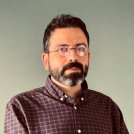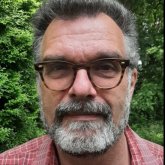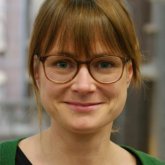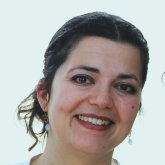Researcher Gamification of Urban Digital Twins
The University of Twente is committed to being an organization that improves diversity, talents, and capabilities in the labour market, both now and in the future. As part of our diversity and inclusiveness policy, we strongly encourage individuals with (work) disabilities to apply.
Additionally, the University of Twente is committed to providing a working environment where everyone is valued, respected, and supported to progress. Our priority is to ensure that no one is disadvantaged based on their ethnicity, gender, culture, disability, LGBTQ+ identities, family and caring responsibilities, age, religion, or political beliefs. We encourage everyone who shares these values to apply.
The project CU: European Cityverses Uniting for Inclusiveness (www.itc.nl/global-impact/itc-major-projects/!/cu) is a research and development initiative co-funded by the European Commission and the Royal Dutch Enterprise Agency (RVO). The University of Twente is a consortium partner in this project and is tasked with the gamification of the digital twin of the city of Gothenburg in Sweden (as a pilot project) to enhance the inclusivity of activities and the total experience of the city for people with diverse abilities and families of children with disabilities. The project has a total duration of 30 months, starting from October 2024 and ending on the 1st of April 2027.
Accordingly, we are looking for fresh graduates of geo-informatics, computer science (computer graphics), architecture (computational or procedural design), or related fields with demonstrable expertise in 3D modelling, gamification, and geospatial informatics. The topical subject areas of Procedural Content Generation (PCG), Role Playing Games (RPGs), Algorithmic Graph Drawing, Transport Modelling, Guided Way-Finding, and Optimal Path-Finding, Machine Learning, AI Assistants, Collaborative Filtering (Recommender Systems), and/or Polygon Mesh Processing are envisaged to be addressed in these temporary research assignments.
Your activities include assistance in writing reports and articles next to working on the digital implementation of gamified digital twin prototypes or digital proofs of concept; procedural cartography, defining location-based services, designing user interfaces, extended reality experiences, or a creative combination of these activities in consultation with the project partners. Experience in working with (vector-based) diagramming tools like FIGMA and DrawIO is quite helpful for this project. You will also be guided and encouraged to write open-source code in Python (NumPy-SciPy dialect) and work with MarkDown, LaTeX, and GitHub to produce the results. You can set up and run effective Git-based digital and online workflows for collaborative work.
Information and application
For more information regarding this position, you are welcome to contact Dr Pirouz Nourian (p.nourian@utwente.nl) or Dr Mila Koeva (m.n.koeva@utwente.nl). You are also invited to visit our homepage.
For questions about working and living in the Netherlands please consult the official website of the Netherlands Government or the website of the Expat Center East Netherlands.
Please submit your application before the 15th of April 2025 including:
- A motivation letter (maximum 1 A4 page), emphasizing your specific interest, qualifications and motivation to apply for this position (we also want to see your cultural side)
- Curriculum Vitae including your publications, projects, awards (if any), and working experience, including references who are willing to be contacted by us
- An academic transcript of BSc and MSc education, including grades
- Your MSc thesis or its latest draft in English.
Applications that do not have all the requested information, will not be considered.
Interviews (online or onsite) will probably take place during the second half of April 2025. Preferred starting date of the position: 1 May 2025.
About the department
The Department of Urban and Regional Planning and Geoinformation Management (PGM) combines social sciences and geospatial information sciences to promote meaningful and effective utilization of geospatial digital technologies in the planning and geoinformation management practices concerned with the development of human settlements in the context of their wider social, economic, and ecological environs. Our goal is to contribute to enhancing the utilization of geospatial information in managing the present, understanding the past, and steering the future changes of human settlements across rural and urban scales.
About the organisation
The Faculty of Geo-Information Science and Earth Observation (ITC) provides international postgraduate education, research and project services in the field of geo-information science and earth observation. Our mission is capacity development, where we apply, share and facilitate the effective use of geo-information and earth observation knowledge and tools for tackling global wicked problems. Our purpose is to enable our many partners around the world to track and trace the impact – and the shifting causes and frontiers – of today’s global challenges. Our vision is of a world in which researchers, educators, and students collaborate across disciplinary and geographic divides with governmental and non-governmental organisations, institutes, businesses, and local populations to surmount today’s complex global challenges and to contribute to sustainable, fair, and digital societies.





